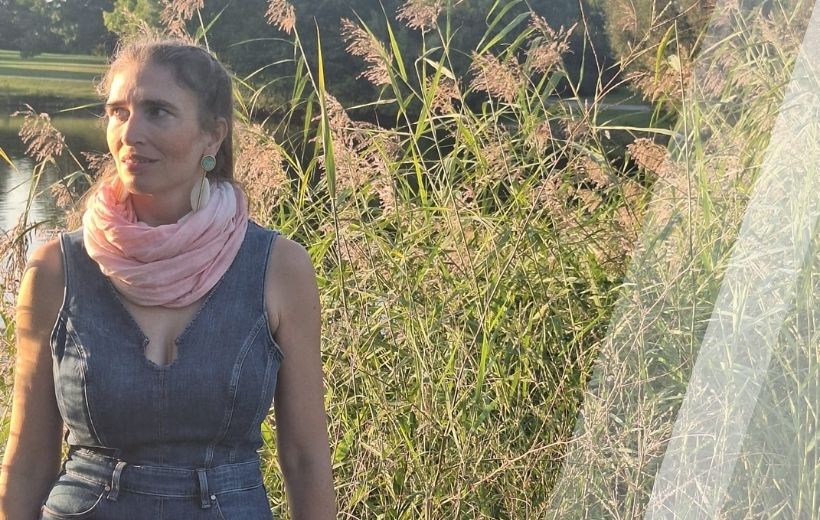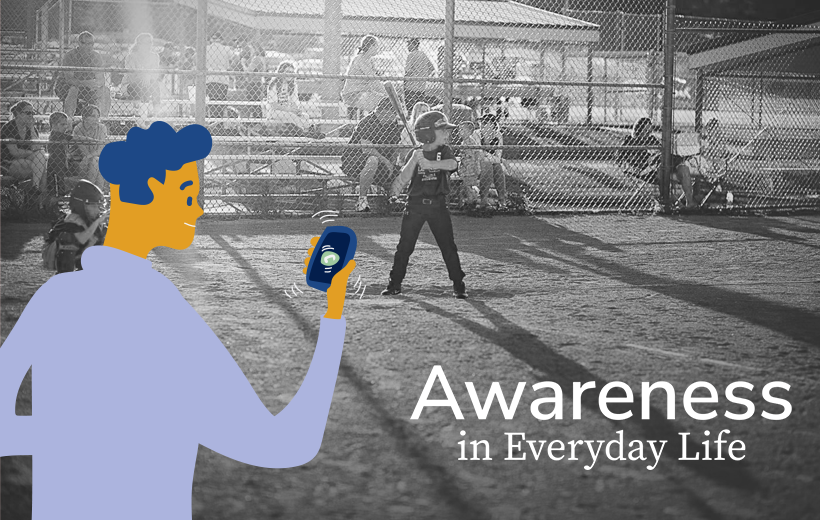A New Relationship with Pain
By Franka Cordua-von Specht• 4 min read

AT TIMES WHEN WE ENCOUNTER a desperate situation and we no longer know where to turn for help, the door to meditation opens. Such was Maria Müller Hornbach’s situation.
Thirteen years ago Maria, a philosopher with a research position at the Goethe University in Frankfurt, was diagnosed with Crohn’s disease, an inflammatory bowel condition. The chronic disease has taken her on a challenging trajectory involving long stays in hospitals, multiple surgeries, as well as a great deal of pain.
To be clear, the pain did not go away when she meditated. However, meditation helped her cope with the pain. Before meditation, she had been running away from the pain. “I tried to distract myself but the pain always caught up with me,” said Maria, 43, in an interview from her home on the outskirts of Frankfurt, Germany. “When I started meditating, I realized I could be present to the pain. There was more space around it.”
The physical benefits were immediately tangible, as was the greater mental ease. She no longer felt like a victim of the pain; rather, she felt empowered to live her life. “It really changed my life,” she said. “I mean nothing changed my life more than this.”
One of the most challenging times had been the recovery post-surgery period. The days were long and isolating. “It was always a bit like a personal lockdown to be back in the hospital,” she said, joking that when Covid came, the lockdowns did not require any adjustment on her part. She knew these lonely stretches all too well.
Additionally, even when she returned to her day-to-day life, she often felt out of sync with friends and peers. The questions she was contemplating — whether to opt for surgery or whether to fear for her life should she choose surgery — were very different from what preoccupied her peers.
Meditation helped with her state of mind. Once she noticed its benefits, she felt a wish to share with others what had helped her. She took a meditation teacher in the Vipassana tradition and began to teach regularly online. And when the Tergar Meditation Teacher Program (MTP) opened last year, she signed up. She was keen to study Rinpoche’s teaching pathway as she would be able to teach what she was practicing herself.
His humor and lightness appealed to her, as did the profundity of his approach. “I always feel that the way he teaches is not so much about having to attain something but about recognizing what you already have within you, and I think that’s such a beautiful way to see, practice, and live life.”
She particularly appreciates this approach because she is fundamentally achievement-oriented, and the mantra of “doing, doing” has always been with her.
“I think Mingyur Rinpoche’s view — that innate goodness is already inside me, and I just need to recognize it — takes so much of the achievement orientation and stress out of it. Then you are motivated to practice, not out of a feeling of a deficit but more out of a feeling of richness.”
“What you really need to learn in order to live well is actually to cope
with your own psyche.” — Maria Müller Hornbach
Ideally, she would like to help people with chronic illness, but this is difficult in Germany, where one would need to be a professional in the healthcare system. However, doors are opening in the education system. Both she and her brother Johannes, a teacher and equally an MTP grad, hope to bring meditation into German high schools, and the pair are currently running a pilot project. Both are very motivated.
Maria spoke about the stress that young people face, particularly the relentless orientation toward achievement in German schools, especially the Gymnasium. “Achievement is everything,” she said. “What you really need to learn to live well is to cope with your own psyche.”
As youngsters, she and Johannes had been exposed to the books of the Dalai Lama at home as their father was interested in Eastern religions, at least the theoretical understanding.
Maria has always been interested in the esoteric. Even as a child, she asked questions about existence: Who are we? What are we? Why are we here?
Her focus naturally turned to religious studies. Her thesis is research on the question of death. She delves into questions such as “What is the value of our own death for ourselves?” and “How does our concept of ourselves influence our attitude towards our own death?”
The research has taken her deeply into Buddhist views of the self or no self. She sees many connections between Western and Eastern philosophies. At present, little comparative work has been done at the university level, but she is hoping this will change over time. Right now, there are not many, but she is one of the few working to bridge the traditions.
The Meditation Teacher Program has been extremely helpful in her teaching. She found her cohort inspiring and has gained confidence in presenting meditation teachings, both the guided meditations and Mingyur Rinpoche’s approach to the path. She also appreciates her newly gained understanding of the science of meditation.
Above all, she will convey her passion for meditation, which stems from her deep appreciation of the Buddhist tradition as a path of self-discovery. “I see meditation as an adventurous journey into the mind,” she said. “It’s so interesting to look inside and discover so much about your own mind that you didn’t know beforehand.”
April 2025

Learn meditation under the skillful guidance of world-renowned teacher Yongey Mingyur Rinpoche at your own pace.


This is a very, very difficult time right now. Around the world, people are struggling with conflicts, intolerance and inequity, poverty, and the effects of climate change. The pandemic and other serious illnesses continue to create suffering, too.

What if becoming a householder yogi—a spiritual seeker embedded in real-world responsibilities—could help you find calm amidst the noise of modern life?

When Bob Eng became a grandfather eight years ago, it sparked an urgent question: “What kind of world will my grandson inherit?” This question led Bob to delve into deep contemplation about the future.
If you enjoyed reading our articles, please join our mailing list and we’ll send you our news and latest pieces.